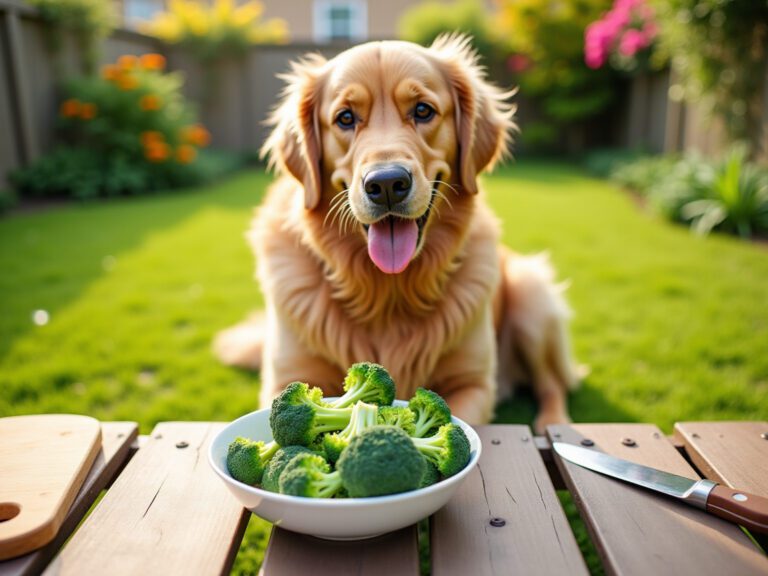Can Dogs Have Cottage Cheese? A Step-by-Step Guide
Overview
Your furry family members can enjoy cottage cheese in moderation, as it serves as a nutritious dairy option packed with protein, calcium, and probiotics that can greatly benefit their health. It’s essential to introduce this treat gradually and keep a watchful eye for any adverse reactions, especially for dogs that may be lactose intolerant.
Remember, cottage cheese should not exceed 10% of their daily caloric intake. By taking these precautions, you can ensure a safe and enjoyable experience for your beloved pets.
Introduction
Cottage cheese is often celebrated for its nutritional benefits, and when introduced correctly, it can be a delightful addition to your furry family member’s diet. Packed with protein and calcium, this creamy treat not only supports muscle development but also aids in maintaining strong bones.
However, we understand that the journey of incorporating cottage cheese into your dog’s meals may come with challenges—many dogs can experience lactose intolerance, raising important questions about its safety and suitability.
How can you navigate these potential pitfalls while ensuring your beloved pet enjoys the benefits of this dairy delight? Let’s explore the possibilities together.
Understand the Nutritional Benefits of Cottage Cheese for Dogs
Cottage curds are a highly nutritious dairy item that can offer several advantages for your furry family members when given in moderation. This delightful treat is an excellent source of protein, essential for muscle development and repair. Additionally, cottage cheese is abundant in calcium, which plays a crucial role in maintaining strong bones and teeth. With its reduced lactose content compared to other dairy items, many canines find it easier to digest. Plus, the probiotics present in cottage cheese can promote gut health, aiding digestion and potentially alleviating upset stomachs.
However, it’s important to remember that some dogs may be lactose intolerant, so careful monitoring is key when introducing this food. Start with minimal quantities—just one or two teaspoons for smaller canines and a tablespoon for larger breeds—and observe for any negative responses over the next 24 to 48 hours. If your dog shows signs of stomach distress, such as diarrhea or bloating, discontinue the dairy product and consult your veterinarian. Cottage curd should not serve as a main food source; rather, treat it as an occasional snack, limited to a few times a week to prevent digestive issues. By following these guidelines, cottage curds can be a nutritious and delightful snack for dogs, ensuring their well-being remains a top priority.
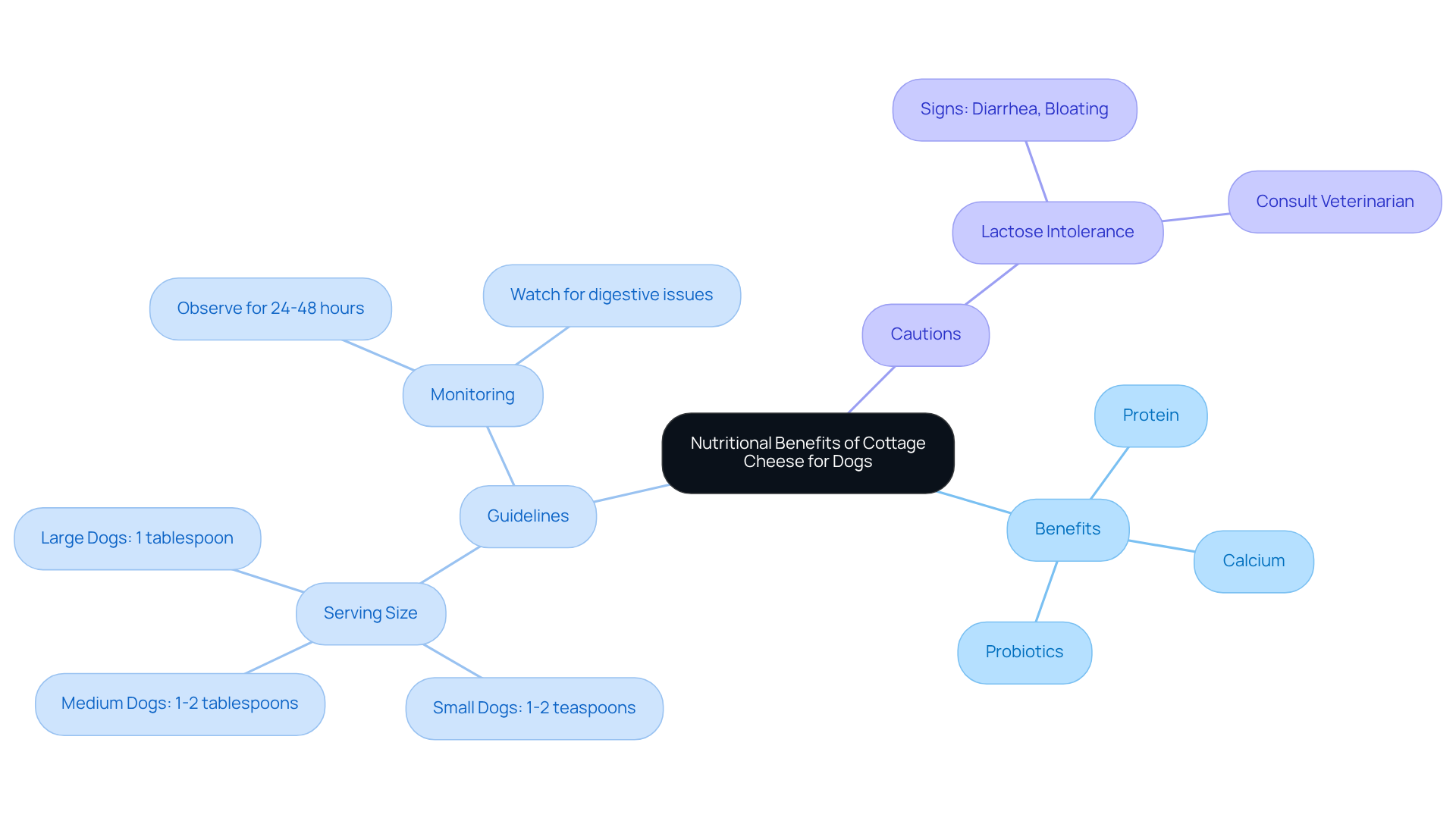
Follow a Step-by-Step Guide to Introduce Cottage Cheese
-
Choose the right curd product: When considering if can dogs have cottage cheese, opt for plain, low-fat curd that is free from added flavors or salt. It’s important to steer clear of high-fat varieties, as these can lead to unwanted weight gain and digestive discomfort.
-
Start Small: Begin the journey by blending a small amount of curds into your dog’s regular food. A teaspoon is an excellent starting point for smaller dogs, while larger breeds can typically handle a tablespoon. As a helpful guideline, aim for about 1 tablespoon of curds per 10 pounds of your dog’s body weight.
-
Monitor for Reactions: After introducing curds, keep a watchful eye on your dog for any signs of stomach upset, such as diarrhea or vomiting. If your beloved pet shows any negative reactions, it’s best to discontinue the dairy curds and consult your veterinarian. Remember, some dogs may be lactose intolerant, so it’s important to consider if can dogs have cottage cheese, as it can lead to digestive issues.
-
Slowly Raise the Quantity: If your dog embraces the initial introduction, gradually increase the amount of curds over the next few days. Just be sure this delightful treat doesn’t exceed 10% of their daily caloric intake to maintain a balanced diet. Additionally, always avoid curds that contain harmful ingredients like onions or garlic, ensuring a nurturing environment for your pet.
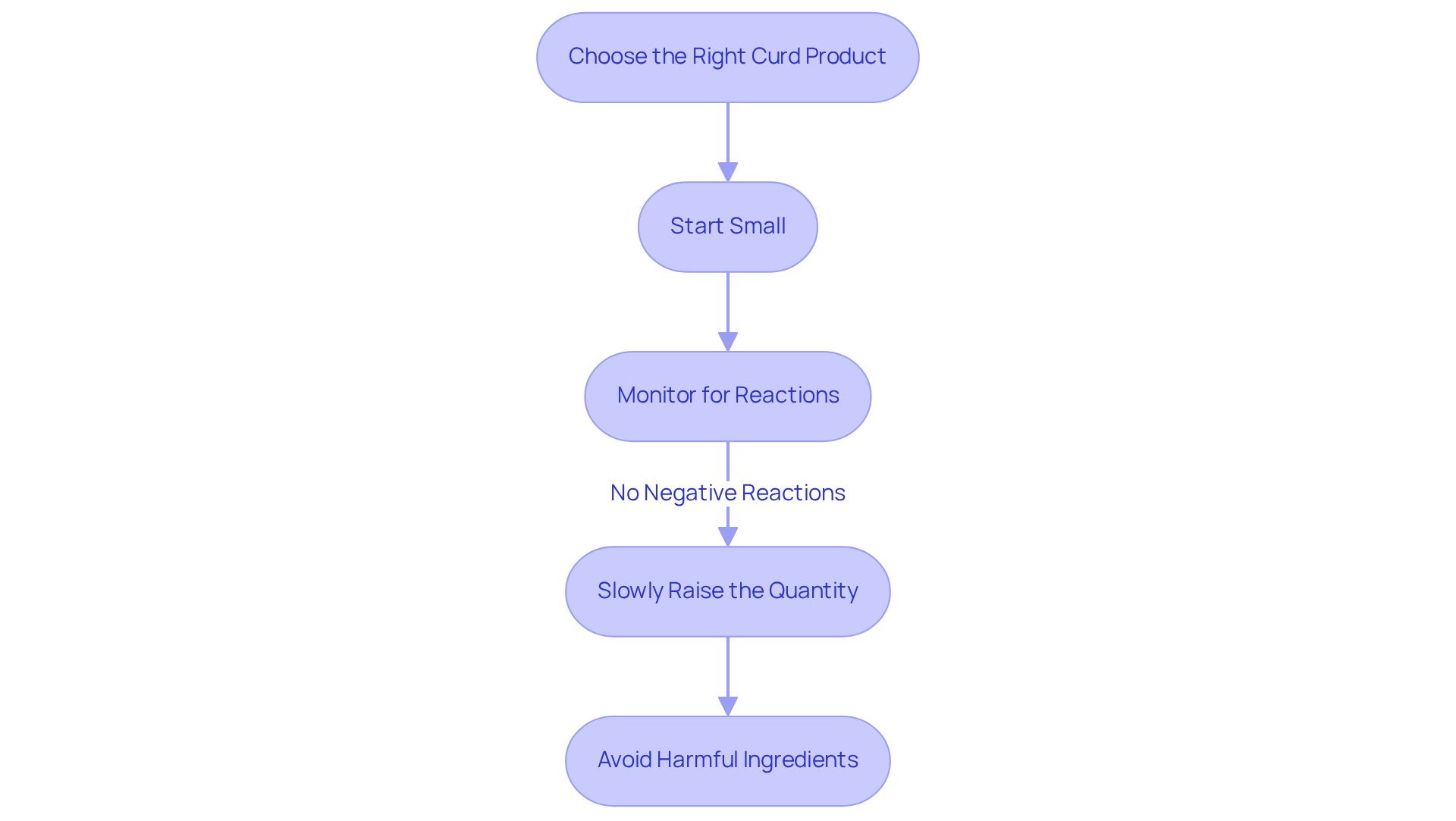
Monitor Your Dog’s Reaction and Adjust Accordingly
Introducing curds into your dog’s diet can be a delightful experience, but it’s essential to monitor their behavior and health closely for any signs of digestive issues, particularly when asking the question, can dogs have cottage cheese? Since this dairy product is low in lactose, it raises the question of whether can dogs have cottage cheese, making it potentially suitable for dogs with lactose intolerance. Here are some key indicators to keep an eye on:
- Diarrhea or loose stools
- Increased frequency of bowel movements or urgency to defecate
- Vomiting
- Excessive gas or bloating
- Changes in appetite or energy levels
If you notice any of these symptoms in your furry family member, consider reducing the amount of cottage cheese or even removing it from their diet altogether. Generally, it’s recommended to provide about 1 tablespoon of curds per 10 pounds of body weight daily. Should symptoms persist, please consult your veterinarian to ensure your dog’s health remains uncompromised.
On a positive note, if your dog enjoys this dairy treat without any adverse reactions, you might wonder, can dogs have cottage cheese, and feel free to continue incorporating it into their meals, adjusting the portion size as necessary to support their well-being. Additionally, mixing curds with easily digestible foods, like boiled white rice, can help soothe an upset stomach. Remember, your pet’s comfort and health are our top priorities at Adventure Den.
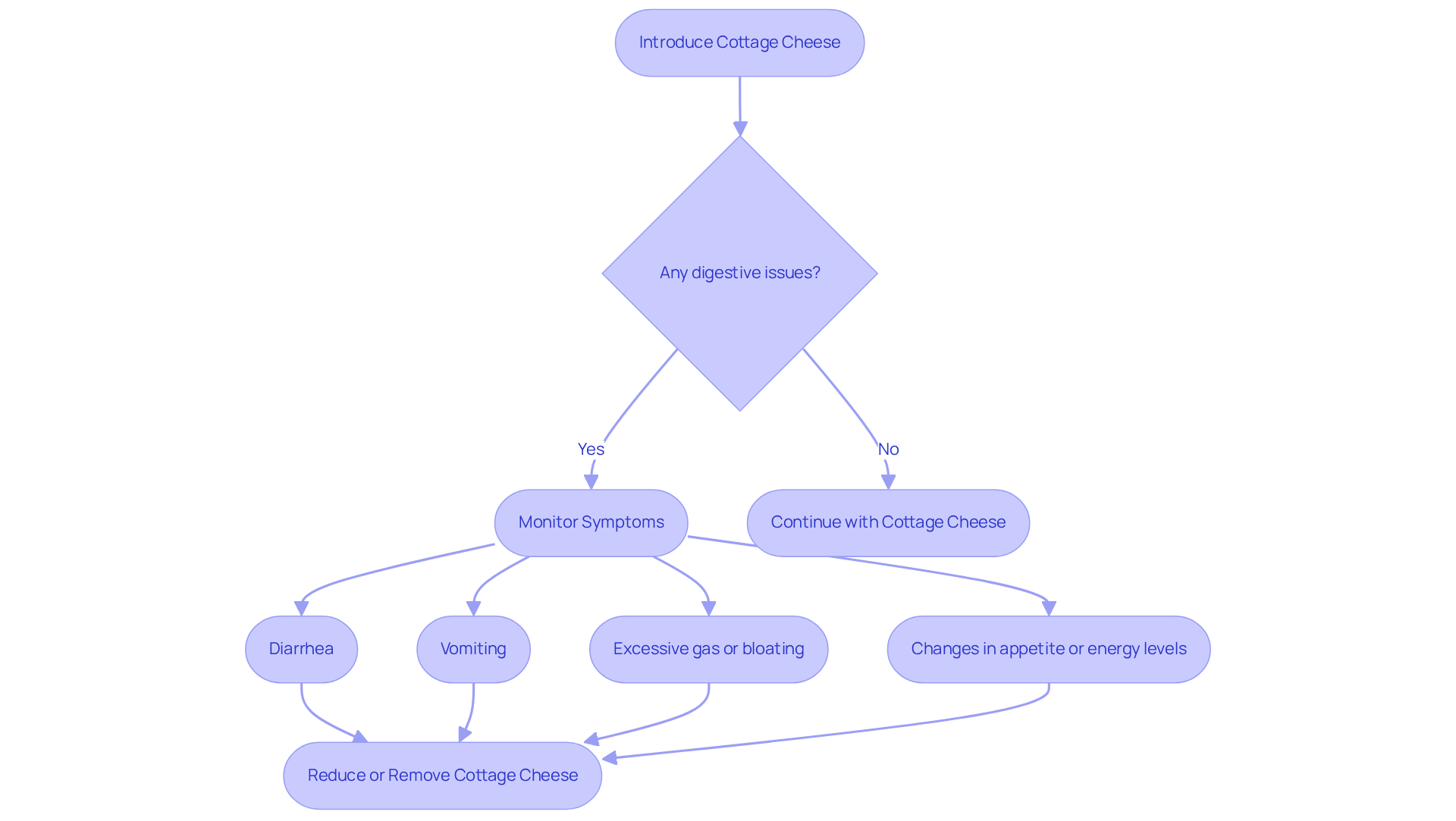
Consult Your Veterinarian for Personalized Advice
Before adding curds or making any significant changes to your furry family member’s nutrition, it is essential to consult your veterinarian. They can provide personalized recommendations tailored to your dog’s unique health status, age, weight, and any pre-existing medical conditions. Your veterinarian plays a vital role in determining the appropriate portion sizes and the frequency of cottage cheese in your dog’s diet, particularly when addressing the question of can dogs have cottage cheese, ensuring it aligns with their overall nutritional needs.
With 59% of dogs in the U.S. facing overweight or obesity issues, and only 17% of dog owners recognizing this concern, professional guidance is crucial for maintaining your pet’s health. As Dr. Ernie Ward noted, the prevalence of pet obesity is a significant issue, making it imperative to seek expert advice. By working closely with your veterinarian, who is uniquely qualified to prescribe dietary changes for various species, you can ensure that any adjustments contribute positively to your dog’s well-being.
Taking this step not only supports your dog’s health but also fosters a nurturing environment where they can thrive. Remember, your veterinarian is there to help you navigate these important decisions, ensuring that your beloved companion receives the best care possible.
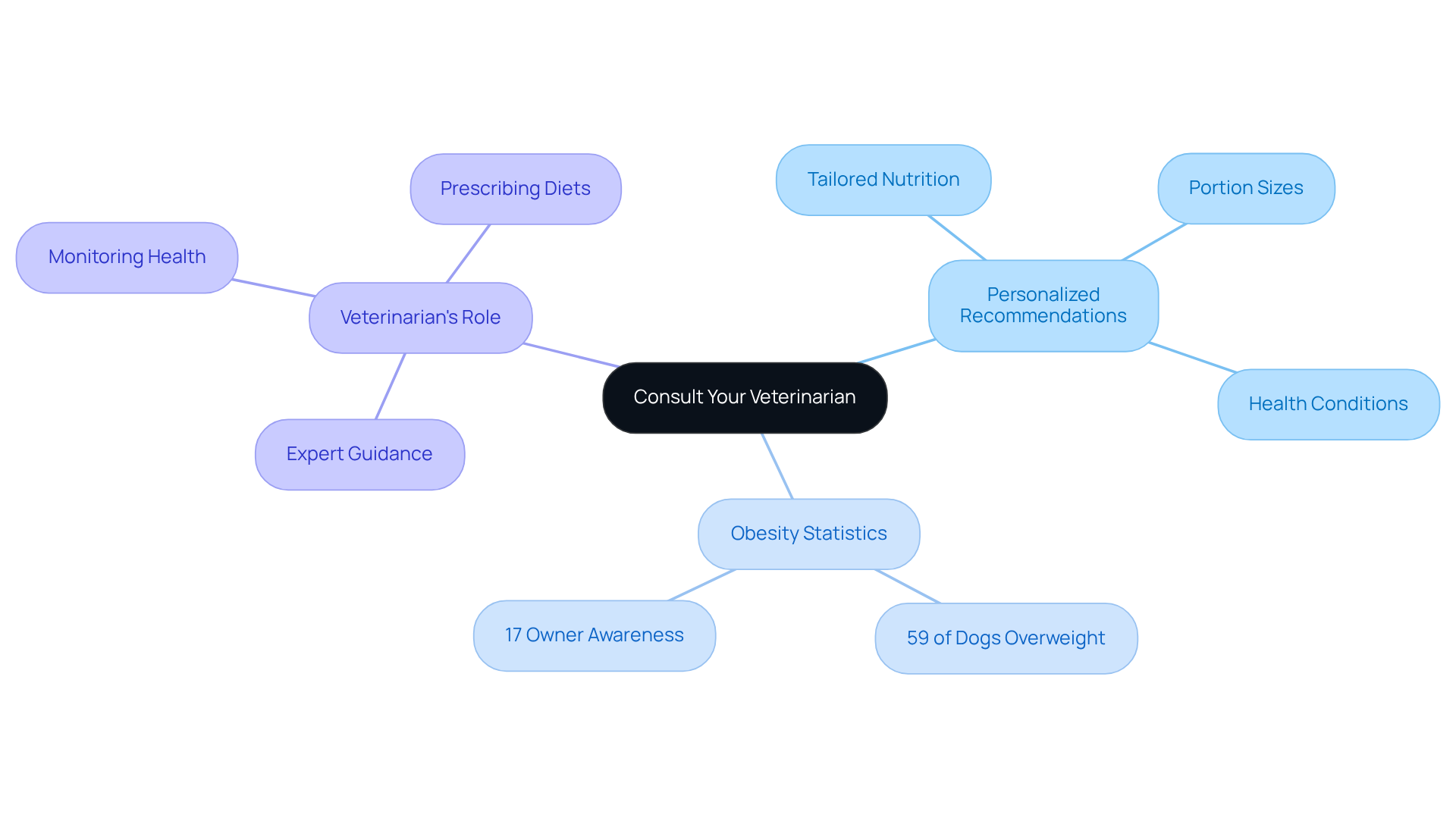
Conclusion
Incorporating cottage cheese into your furry family member’s diet can be a rewarding experience, provided it is done thoughtfully and in moderation. This nutritious dairy product offers numerous health benefits, including protein for muscle development and calcium for strong bones. However, it is essential to approach this addition with care, ensuring that it aligns with each dog’s unique digestive capabilities and overall health.
Start by introducing small amounts of cottage cheese, monitoring for any adverse reactions, and consulting your veterinarian for personalized guidance. Key points to consider include:
- The nutritional advantages of cottage cheese
- The step-by-step process for introducing it to your dog’s diet
- The importance of being vigilant regarding potential lactose intolerance
By following these guidelines, you can safely treat your pet to this creamy delight while prioritizing their well-being.
Ultimately, the journey of introducing cottage cheese should be approached with caution and care. By understanding the nutritional benefits, observing your dog’s reactions, and seeking professional advice, you can make informed decisions that enhance your furry companion’s diet. Embracing a proactive approach to pet nutrition not only promotes health but also strengthens the bond between you and your dog, ensuring a happy and thriving household.
Frequently Asked Questions
What are the nutritional benefits of cottage cheese for dogs?
Cottage cheese is a highly nutritious dairy item that offers several advantages for dogs, including being an excellent source of protein for muscle development and repair, and being rich in calcium for strong bones and teeth. It also contains probiotics that promote gut health.
Is cottage cheese easy for dogs to digest?
Yes, cottage cheese has a reduced lactose content compared to other dairy items, making it easier for many dogs to digest.
Can all dogs eat cottage cheese?
Not all dogs can eat cottage cheese, as some may be lactose intolerant. It’s important to monitor your dog for any adverse reactions when introducing this food.
How should cottage cheese be introduced to a dog’s diet?
Start with minimal quantities—one or two teaspoons for smaller dogs and a tablespoon for larger breeds. Observe for any negative responses over the next 24 to 48 hours.
What signs should I look for if my dog has a negative reaction to cottage cheese?
Signs of a negative reaction may include stomach distress, diarrhea, or bloating. If these occur, discontinue the dairy product and consult your veterinarian.
How often can I give my dog cottage cheese?
Cottage cheese should not be a main food source but can be treated as an occasional snack, limited to a few times a week to prevent digestive issues.


